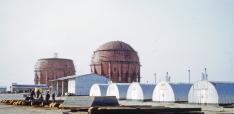Duterte and the International Criminal Court: A Trial with Global Implications

Former Philippine President Rodrigo Duterte faces trial at the International Criminal Court (ICC) for crimes against humanity tied to his deadly war on drugs. The case is a major test for the ICC, which has struggled to convict high-level leaders. Unlike past cases hindered by political obstruction, Duterte is out of power and lacks strong international allies, increasing the chances of prosecution. The trial’s result will impact the ICC’s credibility and future role in global accountability.
The impending trial of former Philippine President Rodrigo Duterte at the International Criminal Court (ICC) represents a landmark moment in international justice. Duterte, whose controversial “war on drugs” resulted in thousands of extrajudicial killings, faces allegations of crimes against humanity. His case raises important questions about the ICC’s track record, the challenges of prosecuting former heads of state, and the role of international support in ensuring accountability.
The ICC, established in 2002, prosecutes individuals for genocide, war crimes, and crimes against humanity. Unlike the International Court of Justice (ICJ), which resolves state disputes, the ICC focuses on individual accountability. It has 124 member states, but major powers like the United States, China, and Russia are not members, limiting its global reach. Despite this, the ICC plays a key role in pursuing justice when national courts fail to act.
One of the distinctive aspects of ICC trials is that they do not use juries. Instead, a panel of three professional judges in the Trial Chamber will oversee Duterte’s case, evaluate the evidence, and issue a verdict by majority vote. The prosecution must prove his guilt beyond a reasonable doubt, just as in national courts. However, unlike systems such as the United States or the Philippines, where a jury determines guilt, ICC judges serve as both the finders of fact and law. If found guilty, Duterte could face up to 30 years in prison, or life in exceptional cases. Conversely, if the evidence is deemed insufficient, he will be acquitted and released.
High-Profile Cases: Precedents and Potential Pitfalls
Examining the ICC’s track record provides insight into Duterte’s chances of conviction. Since its establishment, the ICC has handled 31 cases, leading to 10 convictions and four acquittals, while others were withdrawn, dismissed, or remain ongoing. This translates to a conviction-to-acquittal ratio of roughly 2.5 to 1.
However, most of the ICC’s convictions have targeted mid-level commanders rather than heads of state. For example, the court convicted Thomas Lubanga, a Congolese militia leader, in 2012 for conscripting child soldiers, Bosco Ntaganda, another Congolese warlord, in 2019 for atrocities in the Democratic Republic of the Congo, and Dominic Ongwen, a Ugandan ex-rebel commander, in 2021 for crimes committed as a leader of the Lord’s Resistance Army. These cases show the ICC can successfully prosecute individuals when there is strong evidence and when the accused are in custody with limited political leverage. By contrast, no sitting or former head of state has ever been convicted by the ICC to date.
Several ICC cases involving senior political figures have faltered before reaching a verdict. The most notable example is the case against Kenyan President Uhuru Kenyatta and his deputy, William Ruto, which collapsed due to witness tampering and lack of evidence. Former Libyan Prime Minister Muammar Gaddafi’s son, Saif al-Islam Gaddafi was indicted but effectively not prosecuted as he never surrendered and Libya did not hand him over.
Such instances don’t count as acquittals, but they show that if evidence or cooperation falls short, the ICC may end up with no conviction. The dismissal of Kenyatta’s case in 2014, for example, was explicitly tied to non-cooperation by the state and an “obstruction of justice” through witness tampering. These precedents imply that if key evidence in Duterte’s case were to be withheld or compromised, the case could similarly falter. However, Duterte’s case differs in one crucial aspect — he is no longer in power. His arrest was facilitated by a new Philippine administration, reducing the likelihood of obstruction that plagued cases like Kenyatta’s.
The Case for the Defense: Legal Arguments and the Appeals Process
Duterte’s defense team is likely to challenge the prosecution on multiple fronts. They may argue that extrajudicial killings were not state-orchestrated but rather carried out by rogue officers or vigilantes. Another potential defense is that Duterte’s rhetoric did not constitute direct orders for murder. His legal team may also attempt to discredit key witnesses or claim that the Philippine judiciary was already addressing the issue, an argument the ICC has previously dismissed. If the defense can introduce reasonable doubt, an acquittal could still occur.
Furthermore, Duterte’s age (nearing 80) could slow proceedings, though international tribunals have convicted elderly defendants before. Ultimately, if his defense can introduce reasonable doubt, an acquittal remains possible, though it could be challenged on appeal.
Even if Duterte is convicted, the ICC’s appellate process introduces another layer of unpredictability. The Appeals Chamber can overturn verdicts based on legal or factual errors, as seen in the case of Jean-Pierre Bemba, a Congolese politician whose 2016 conviction was reversed in 2018 due to flawed legal reasoning. Conversely, an acquittal could also be appealed by the prosecution, though the threshold for overturning an acquittal is high. The case of Laurent Gbagbo, the former president of the Ivory Coast, illustrates this; his acquittal was appealed but ultimately upheld in 2021.
For Duterte, this means that a trial verdict — whether guilty or not guilty — would not necessarily be final. Given the ICC’s past reversals, both conviction and acquittal remain possibilities until the appellate process is exhausted.
A Man Alone: Duterte’s Lack of International Support Could Seal His Fate
International dynamics can significantly influence ICC trials. When there is broad support for accountability, the ICC often receives more cooperation, intelligence, and resources. Duterte’s drug war was widely condemned by human rights organizations and Western governments, suggesting a favorable environment for prosecution. Organizations like Amnesty International have framed his arrest as a victory for justice, and key global actors have not opposed the case.
In Duterte’s case, however, there are few international defenders of the brutal drug war tactics, so direct political opposition to the ICC process is limited. The U.S., while not an ICC member, has signalled more openness to ICC initiatives in recent years after previously being hostile, and U.S. officials have also criticized Duterte’s abuses in the past. Regional neighbours in Asia traditionally have been sceptical of the ICC, but they have not rallied to Duterte’s defence in any significant way. All this suggests that international geopolitical currents are generally favourable to the ICC holding Duterte accountable.
This stands in contrast to cases like Russian President Vladimir Putin’s ICC indictment, where geopolitical divisions have complicated enforcement. Unlike Putin, Duterte lacks powerful international backers. While China maintained close ties with him during his presidency, it is unlikely to intervene on his behalf, given his diminished political relevance.
A Trial with Far-Reaching Consequences: The ICC’s Institutional Stakes
Duterte’s ICC trial is not just about one former leader but a test of the ICC’s ability to hold high-profile figures accountable. The ICC, as an institution, is aware of its track record and the political environment. High-profile failures like the collapse of the Kenya cases and the Gbagbo acquittal have been embarrassing for the prosecutor’s office and have drawn criticism about the ICC’s effectiveness in prosecuting powerful figures. The current ICC Prosecutor, Karim Khan, would not have sought Duterte’s arrest without confidence in the strength of the case. A conviction would reinforce the ICC’s deterrent power, while an acquittal might be perceived as another institutional failure.
While past ICC cases suggest conviction is far from guaranteed, Duterte lacks the geopolitical shields that have protected other leaders. Regardless of the verdict, this case will shape perceptions of the ICC’s effectiveness, the future of international justice in Asia, and the broader debate over accountability for human rights abuses.
Dr Kristian Alexander is a Senior Fellow and Lead Researcher at the Rabdan Security and Defence Institute (RSDI), Abu Dhabi, UAE.
Image - Judgefloro - Wikicommons

